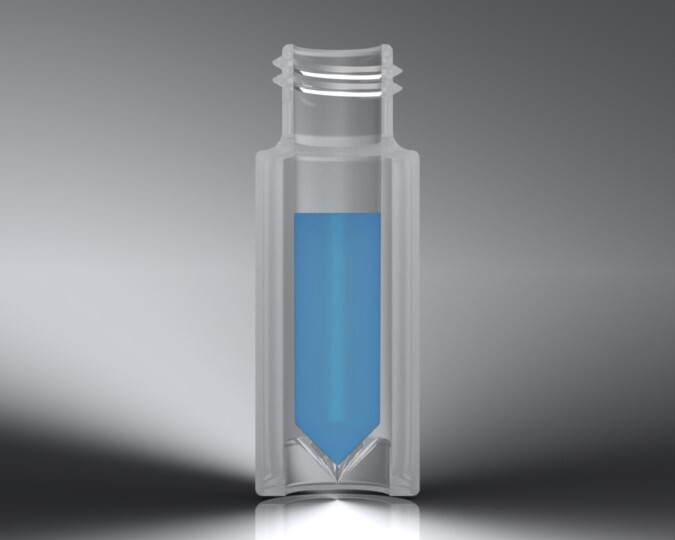Vials for LC & GC Analytical Use: Material Choices
We offer three types of borosilicate glass vials specifically designed for analytical applications such as liquid chromatography (LC), gas chromatography (GC), and mass spectrometry. Available in both clear and amber versions, these vials ensure optimal sample integrity during analysis. Our offerings include Standard Glass, Premium Glass, and Deactivated (Surface-Coated) Glass.
Standard Borosilicate Glass
Our Standard Borosilicate Glass vials are made from Type 1 borosilicate glass, providing reliable performance for general analytical applications in LC, GC, and mass spectrometry. These vials are chemically resistant and non-reactive, offering stable conditions for a wide range of samples. They are suitable for applications that do not require special pH or adsorption resistance but still demand durability and resistance to chemical degradation.
Premium Borosilicate Glass
Our Premium Glass vials are designed for the most sensitive analytical applications, making them ideal for mass spectrometry. These vials offer minimal sample loss due to adsorption and enhanced resistance to pH shifts. With a formulation designed to minimize interactions between the vial surface and the sample, Premium Glass vials ensure the highest accuracy and reliability during the analysis of delicate compounds such as proteins, small molecules, and other sensitive substances. Available in both clear and amber versions, they are essential for high-precision applications like LC, GC, and mass spectrometry.
Deactivated (Surface-Coated) Glass
For the most sensitive compounds, our Deactivated (Surface-Coated) Glass vials are the ideal choice. Featuring proprietary coating technology, these vials reduce any interaction between the vial surface and the sample, ensuring that even the most delicate and critical samples maintain their integrity. These vials are perfect for highly sensitive biological, pharmaceutical, or chemical samples that require precise handling. Available in both clear and amber versions, they also protect light-sensitive compounds during LC, GC, and mass spectrometry analysis.
Polypropylene Vials
LC and GC users sometimes choose polypropylene vials for their chemical resistance, durability, and cost-effectiveness. Polypropylene is resistant to a wide range of solvents, acids, and bases, making it ideal for handling various chemicals. It is lightweight, less prone to breakage compared to glass, and some users worry that certain compounds may absorb to glass surfaces, leading to sample loss. Additionally, polypropylene is non-reactive, preventing contamination of samples during storage and analysis. The 2 mL format vials made from virgin polypropylene are available in two center draining versions, one for routine analytical use and one for lower residual volume work.

